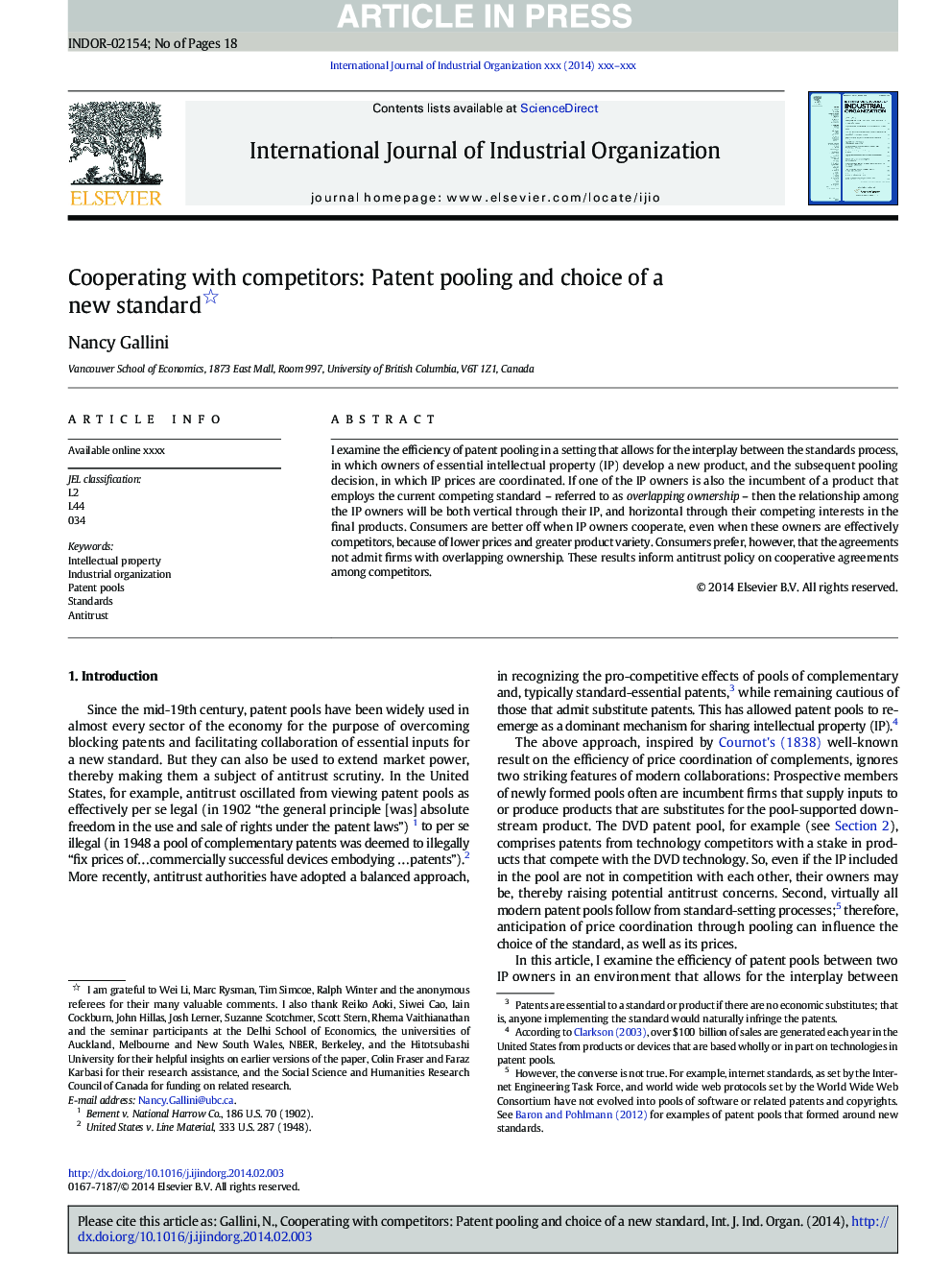| Article ID | Journal | Published Year | Pages | File Type |
|---|---|---|---|---|
| 5077952 | International Journal of Industrial Organization | 2014 | 18 Pages |
Abstract
I examine the efficiency of patent pooling in a setting that allows for the interplay between the standards process, in which owners of essential intellectual property (IP) develop a new product, and the subsequent pooling decision, in which IP prices are coordinated. If one of the IP owners is also the incumbent of a product that employs the current competing standard - referred to as overlapping ownership - then the relationship among the IP owners will be both vertical through their IP, and horizontal through their competing interests in the final products. Consumers are better off when IP owners cooperate, even when these owners are effectively competitors, because of lower prices and greater product variety. Consumers prefer, however, that the agreements not admit firms with overlapping ownership. These results inform antitrust policy on cooperative agreements among competitors.
Related Topics
Social Sciences and Humanities
Economics, Econometrics and Finance
Economics and Econometrics
Authors
Nancy Gallini,
